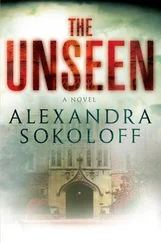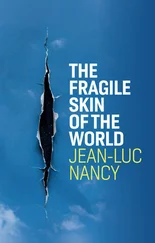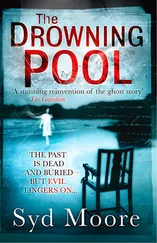“I’ll be right back,” said Ada, when they pulled onto Shawmut Way. And then she returned briefly to David’s house to gather together a few more things before moving, permanently, to Liston’s. Just as she had done a year ago, the first time David disappeared, Ada packed some clothes and books into a little suitcase, and then for a moment she paused and sat down briefly on her bed. She looked around the hot, close room that had been hers since she could remember. It was an eaved chamber with a half-high closet, in which hung the few items of clothing she presently owned — each one of which David had bought for her, whenever he had thought of it, or whenever he had been reminded to by Liston — and some from the past that she was particularly fond of. The dirndl he had purchased for her in Munich, which she had long since outgrown. A little pair of Dutch wooden shoes, hand-painted with tulips. A beautiful silk kimono, purchased in Kyoto. She went through all of these now, tenderly, remembering each trip, forcing herself to consider the idea that she would not ever take a trip with David again. Then she folded the several shirts she had that currently fit her, and her one pair of jeans, and underwear and socks, and the several training bras that Liston had taken her to buy two years ago, stealing her away from the lab for the afternoon.
“Tell your father if you want to,” Liston had said. “He won’t care.” And he wouldn’t have, but Ada didn’t, telling herself — out of embarrassment — that it was not necessary. They didn’t fit her properly anymore; she would have to work up her courage either to tell Liston or to venture into a department store by herself.
All of these items she packed into her little blue suitcase. Its faded leather had reminded her, always, of the skin of an elephant: an observation that had once made David laugh aloud.
Then, at last, Ada walked down the wide wooden staircase that took her to the first floor, bearing her suitcase bravely in her left hand, and hanging on to the banister with her right. How many times had she walked down this staircase in anticipation of some new discovery, some new lesson that would be imparted to her by her father, her creator? Some conversation that would open before her a new dimension of the universe, a new chapter of the history of the world?
Ada was relieved to find, upon entering Liston’s house, that her sons were nowhere to be found. Dinner was planned for 6:30.
“Everyone’s out,” said Liston, “but they’ll be back soon. They’d better be, anyway.”
Then she showed her up to her new room, Matty’s old one, which, in the last week, Liston had stripped of its boyishness and made as plain as she could. Matty had now been given permanent residency in Gregory’s room — Ada shuddered to think how Gregory might have reacted to this change — and the race-car bed had been moved with him. A twin bed with a dust ruffle and a pink-and-orange afghan — Joanie’s when she was small, said Liston — had replaced it. A small pupil’s desk with a lid that opened upward was pushed against a windowed wall, and a pine dresser, emptied, had been positioned near the closet. On the floor was a carpet with a somewhat psychedelic pattern of neon flowers — poppies, she thought — that Liston proudly said she had found at the Salvation Army: her favorite place to shop.
“Will you be okay in here, honey?” asked Liston, and Ada nodded brightly, although she already missed the quietness, the warmth, the dusty uncomfortable heat of her old bedroom. In here the air-conditioning that Liston had insisted on was turned up too high for Ada’s liking, and she put on a sweater as soon as Liston had left. From the first floor, faint sounds made their way up the stairs: The television. Pots and pans, clanking in the kitchen; Liston letting out one loud yell when something went awry. The kitchen door as it opened and closed. A female voice Ada recognized as Joanie’s, and the babyish exclamations of her son, Kenny. And then, finally, a low male voice that made the blood speed up in Ada’s veins.
She opened her suitcase, considered what to wear. The jeans she had, she decided, would have to do, although they were unfashionable: too stiff, too large, much darker than the acid-washed versions that were in style then. These she paired with a large purple T-shirt — purple, she had once furtively read in a women’s magazine in a waiting room, brought out the color of brown eyes — and leather sandals, the same unisex kind that David wore himself. For the first time, she rolled the sleeves of her T-shirt up, a style she had seen other children wear, and then she braided her hair. In the mirror, she took her glasses off and then put them back on. She wished she had pierced ears.
At 6:25, descending the stairs, Ada felt nervous in a way she had rarely felt in her lifetime. Despite her geographic proximity to them — despite the fact that, during her yearlong tenure at Queen of Angels, she had regularly glimpsed all three boys in the hallways and outside (Gregory with his head down, glancing up furtively from beneath lowered eyebrows; William with his head tossed back, in laughter or in pride), despite the fact that she had bravely held up her hand to them in greeting each time she had seen any of them — this would be the first real meal she had ever shared with all of the Listons.
Liston had set places at the dining room table in a way that reminded Ada of the dinner parties David used to have. Matty was seated already, eagerly holding upright his knife and fork on either side of his plate. Gregory was next to him.
“Hi!” said Matty, and Gregory said nothing.
“Hi,” said Ada, softly.
“Are you here, Ada?” Liston called out from the kitchen. “Oh good. Come in here for a sec.”
Timidly, Ada walked around the corner into the kitchen, where the faint smell of something burning was masked by the scent of onions simmering in a pan.
The baby was playing on the floor on a blanket. Joanie, plump and blond and smiling, a larger and younger version of Liston, was standing above him, watching her mother cook. And William Liston was leaning against a counter, a can of Coke in his hand.
“Hey,” he said to Ada as she walked in, and she managed to reply.
“You remember Joanie, honey, right?” said Liston, who was stirring frantically, barely pausing to turn around.
“Dinner’s just going to be the tiniest bit late,” she said.
At the table, Liston lit a candle, the way that David always did.
“Fancy,” said William, and Liston frowned at him. Ada was sitting on the same side as Matty and Gregory. Across from her were William and Joanie and Kenny; Liston sat at the head.
Liston held up a large glass of the artificially sweetened iced tea she drank as part of her ongoing attempt to lose weight, and said, “Honey, we are so happy to have you here.”
Dinner — spaghetti and meatballs; boiled frozen peas, cooked slightly too long, with two pats of butter on the top; boiled frozen carrots, similarly prepared — was passed around the table. Ada was not hungry; her nervousness made it nearly impossible to finish even a few small bites, and she twirled and twirled the pasta on her plate, moving it this way and that.
The boys and Joanie talked over one another raucously, except for quiet Gregory, who sat and ate his meal dourly, sitting very still. The baby, Kenny, squawked and patted his spaghetti with an open palm until Joanie grabbed his hand and said, No , at which point he dissolved into hurt tears. The noise, the volume of it, the disarray of five children at a table (Ada included herself in this figure somewhat tentatively) were a shock to her. She fought against her instinct, which was to put both hands over both ears and hide beneath the table.
Читать дальше












